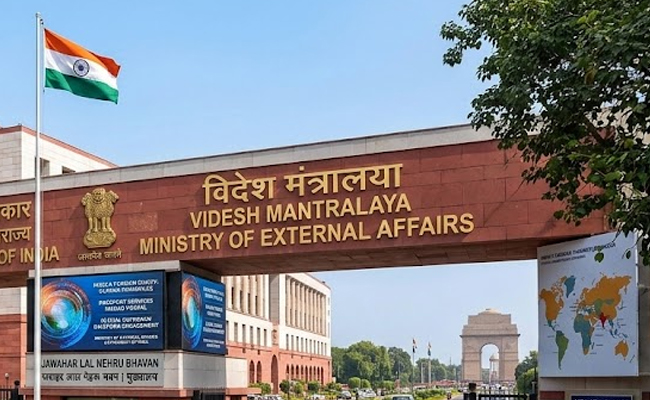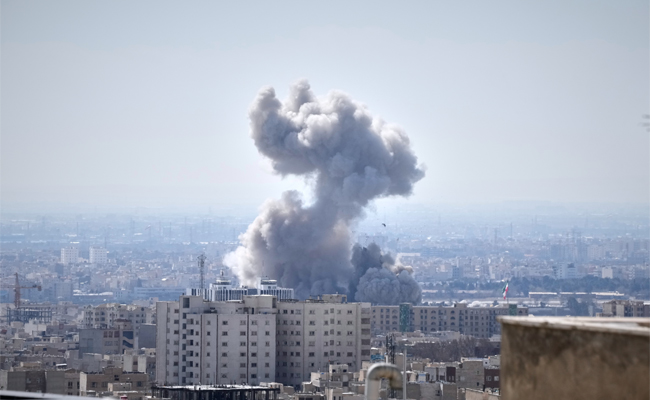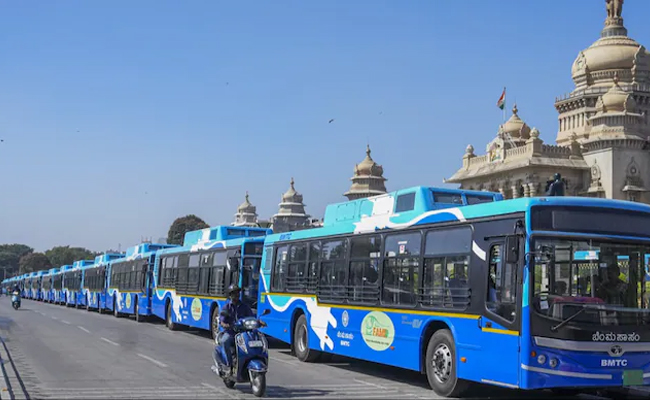Davos, Jan 21 : Indian billionaires saw their fortunes swell by Rs 2,200 crore a day last year, with the top 1 per cent of the country's richest getting richer by 39 per cent as against just 3 per cent increase in wealth for the bottom-half of the population, an Oxfam study said Monday.
Globally, billionaires' fortunes rose by 12 per cent or USD 2.5 billion a day in 2018, whereas the poorest half of the world's population saw their wealth decline by 11 per cent, the international rights group said in its annual study released before the start of the five-day World Economic Forum (WEF) Annual Meeting in this Swiss ski resort town.
Oxfam further said that 13.6 crore Indians, who make up the poorest 10 per cent of the country, continued to remain in debt since 2004.
Asking the political and business leaders who have gathered in Davos for the annual jamboree of the rich and powerful of the world to take urgent steps to tackle the growing rich-poor divide, Oxfam said this increasing inequality is undermining the fight against poverty, damaging economies and fuelling public anger across the globe.
Oxfam International Executive Director Winnie Byanyima, one of the key participants at the WEF summit, said it is "morally outrageous" that a few wealthy individuals are amassing a growing share of India's wealth, while the poor are struggling to eat their next meal or pay for their child's medicines.
"If this obscene inequality between the top 1 percent and the rest of India continues then it will lead to a complete collapse of the social and democratic structure of this country," she added.
Noting that wealth is becoming even more concentrated, Oxfam said 26 people now own the same as the 3.8 billion people who make up the poorest half of humanity, down from 44 people last year.
The world's richest man Jeff Bezos, founder of Amazon, saw his fortune increase to USD 112 billion and just 1 per cent of his fortune is equivalent to the whole health budget for Ethiopia, a country of 115 million people.
"India's top 10 per cent of the population holds 77.4 per cent of the total national wealth. The contrast is even sharper for the top 1 per cent that holds 51.53 per cent of the national wealth.
"The bottom 60 per cent, the majority of the population, own merely 4.8 per cent of the national wealth. Wealth of top 9 billionaires is equivalent to the wealth of the bottom 50 per cent of the population," Oxfam said while noting that high level of wealth disparity subverts democracy.
Between 2018 and 2022, India is estimated to produce 70 new dollar millionaires every day, Oxfam said.
"It (the survey) reveals how governments are exacerbating inequality by underfunding public services, such as healthcare and education, on the one hand, while under taxing corporations and the wealthy, and failing to clamp down on tax dodging on the other," Oxfam India CEO Amitabh Behar said.
The survey also shows that women and girls are hardest hit by rising economic inequality, he added.
"The size of one's bank account should not dictate how many years your children spend in school, or how long you live - yet this is the reality in too many countries across the globe. While corporations and the super-rich enjoy low tax bills, millions of girls are denied a decent education and women are dying for lack of maternity care," Byanyima said.
According to the Oxfam report, India added 18 new billionaires last year, raising the total number of billionaires to 119, while their wealth crossed the USD 400 billion (Rs 28 lakh crore) mark for the first time.
It rose from USD 325.5 billion in 2017 to USD 440.1 billion in 2018, making it the single largest annual increase since the 2008 global financial crisis.
Oxfam further said getting India's richest 1 per cent pay just 0.5 per cent extra tax on their wealth could raise enough money enough to increase the government spending on health by 50 per cent.
It said the combined revenue and capital expenditure of the Centre and states for medical, public health, sanitation and water supply is Rs 2,08,166 crore, which is less than the country' richest man Mukesh Ambani's wealth of Rs 2.8 lakh crore.
Globally, Oxfam said the tax rates for wealthy individuals and corporations have been cut dramatically.
While billionaire wealth soars, public services are suffering from chronic underfunding or being outsourced to private companies that exclude the poorest people, Oxfam said.
The rights group said in many countries including India, a decent education or quality healthcare has become a luxury only the rich can afford.
"Children from poor families in India are three times more likely to die before their first birthday than children from rich families," it added.
Oxfam said its calculations are based on the latest comprehensive data sources available publicly, including from the Credit Suisse Wealth Databook and the annual Forbes Billionaires List.
Let the Truth be known. If you read VB and like VB, please be a VB Supporter and Help us deliver the Truth to one and all.
New Delhi (PTI): The Ministry of External Affairs (MEA) has set up a control room to assist those affected by the escalating crisis in West Asia.
The MEA has said almost one crore Indian citizens live in West Asia and their safety and well-being is of "utmost priority" for New Delhi.
As the Iran-US conflict widened, the Indian embassy in Iran moved hundreds of Indian students from the Iranian capital of Tehran to safer locations.
"A Control Room has been set up in the Ministry of External Affairs in view of the current situation in West Asia and the Gulf region," the MEA said on Wednesday.
"The Control Room can be contacted from 9 am to 9 pm at: 1800118797 (Toll Free) +91 11 2301 2113, +91 11 2301 4104, +91 11 2301 7905," it added.
The US launched military strikes on Iran on February 28, killing Iranian Supreme leader Ali Khamenei.
Following the military offensive, Iran has carried out a wave of attacks mainly targeting Israel and American military bases in several Gulf countries, including the UAE, Bahrain, Kuwait, Jordan and Saudi Arabia.
The MEA on Tuesday noted that almost one crore Indian citizens live and work in the Gulf region, and their "safety and well-being is of utmost priority."
"We cannot be impervious to any development that negatively affects them," it said.
The MEA said New Delhi will continue to closely monitor the evolving situation and take relevant decisions in the national interest, adding it is in touch with the governments in the region as well as other key partners.
A Special Control Room has been set up in the Ministry of External Affairs in view of the current situation in West Asia and the Gulf region. Details are as below ⬇️
— Randhir Jaiswal (@MEAIndia) March 4, 2026
🔗 https://t.co/nK3d6SY9Pa pic.twitter.com/v2EhUI5B1x




